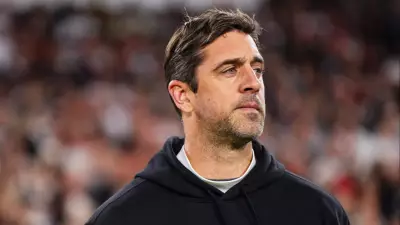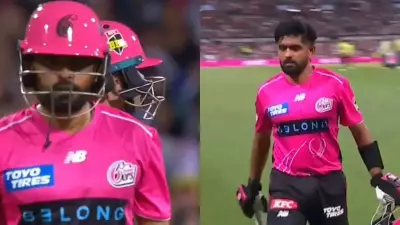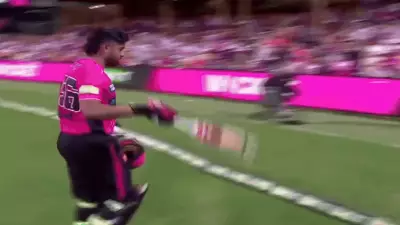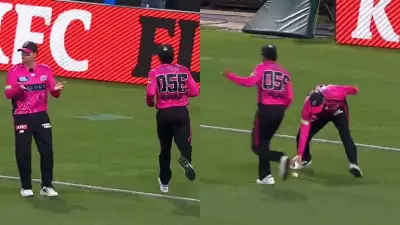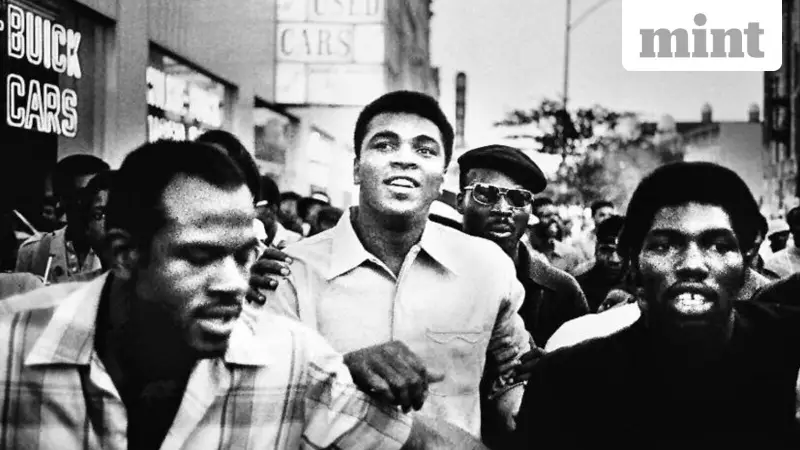
For over two years, Israel's military campaign in Gaza has drawn condemnation from diverse global voices—medical professionals, academic scholars, cultural icons, and even Holocaust survivor groups have publicly denounced the violence. Yet amidst this chorus of dissent, one community's silence has become increasingly conspicuous: the world of professional sports.
The Missing Voices in Athletics
While doctors, dock workers, actors, professors, writers, and musicians have consistently protested the ongoing conflict, the athletic world has produced remarkably few voices of opposition. Only a handful of prominent sports figures have broken this silence, including Formula 1 champion Lewis Hamilton, football stars Mohammed Salah and Karim Benzema, and managerial icons Eric Cantona and Pep Guardiola.
This collective quiet becomes particularly troubling when considering the devastating impact on Palestinian sports. The conflict has claimed the lives of over 1,000 Palestinian athletes among the approximately 67,000 Palestinians killed since October 2023. Every single sporting facility in Gaza has been completely destroyed by Israeli attacks.
The Human Cost: Palestinian Athletes Lost
The tragedy has touched some of Palestine's most promising athletic talents. Suleiman Obeid, Palestine's most celebrated footballer, was shot dead by Israeli forces on August 6 while waiting in line at an aid distribution site in Gaza. He had been searching for food for his wife and five children. Months earlier, Obeid had posted a heartbreaking photograph on Facebook showing himself and his five-year-old daughter sitting dazed amid the rubble of their destroyed home.
Another devastating loss came on January 6, 2024, when Hani Al-Masdar, a player-turned-coach for the Palestinian national football team, was killed in an airstrike that destroyed his home. These stories represent just two among many Palestinian athletes whose lives and careers have been abruptly ended by the conflict.
The Myth of Apolitical Sports
The common argument that "sports and politics don't mix" represents both historical inaccuracy and profound cynicism. In reality, sports remain deeply political. Athletes routinely represent nation-states, proudly raise national flags, and solemnly sing anthems with hands over hearts.
The Olympic Games perfectly illustrate this intersection—they function simultaneously as a celebration of athletic excellence and a patriotic battlefield. Countries frequently use the Olympics to demonstrate their global ascendancy, as China did spectacularly in 2008, or as India aspires to do in future games. Conversely, nations have historically deployed Olympic boycotts as powerful political statements, most notably during the US-led boycott of Moscow 1980 and the Soviet Union's retaliatory boycott of Los Angeles 1984.
The High Price of Athletic Protest
While governments freely exploit sports for political purposes, athletes who dare to express dissent often face severe consequences from both political establishments and the general public. This double standard prompted American-Japanese tennis star Naomi Osaka to question in July 2020: "Do people see us as no more than bodies—individuals who can achieve what's physically impossible for nearly everyone else, and who entertain fans by pushing ourselves past our limits?"
History provides sobering examples of the retaliation faced by activist athletes. On October 16, 1968, American sprinters Tommie Smith and John Carlos staged their iconic Black Power salute during the Mexico City Olympics medal ceremony. While now celebrated as a landmark moment in civil rights history, the immediate consequences were brutal: both athletes were expelled from the Olympic Village, suspended from the US team, lost their jobs, and faced widespread public vilification. Their track careers effectively ended that day.
Australian silver medalist Peter Norman, who stood in solidarity by wearing a human rights badge, faced similar ostracization—his country excluded him from the 1972 Olympics despite his qualifications, and he wasn't even invited to the 2000 Sydney Games.
Perhaps the most famous case of athletic persecution involved boxing legend Muhammad Ali, who became "the most hated man in America" after refusing military draft for the Vietnam War in 1966. Ali faced suspension of his boxing license, stripping of his championship titles, imprisonment, and countless death threats. His powerful explanation—"No, I'm not going 10,000 miles from home to help murder and burn another poor nation simply to continue the domination of white slave masters of the darker people the world over"—resonates with particular urgency in today's context.
A Prophetic Warning from Football
Eric Cantona, the Manchester United legend who has spoken against Gaza violence, delivered a remarkably prescient speech while accepting a European football award in 2019. Quoting Shakespeare's King Lear—"As flies to wanton boys, we are for the gods...they kill us for sport"—Cantona envisioned a future where science could make humans immortal, leaving only "accidents, crimes, and wars" as causes of death, with the latter two multiplying exponentially. His chilling prophecy underscores the urgent need for moral courage in all fields, including sports.
The continued silence from most athletes regarding Gaza raises fundamental questions about the sports world's moral compass and its relationship with political power. As Palestinian athletes perish and sporting infrastructure disappears, the international athletic community faces growing scrutiny over its perceived complicity through silence.

